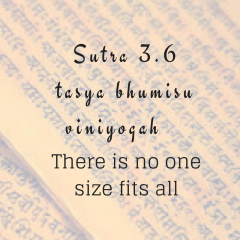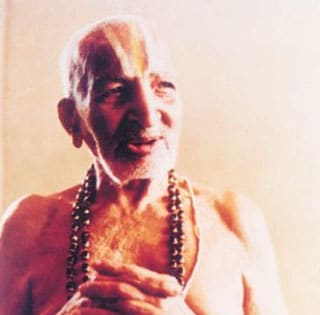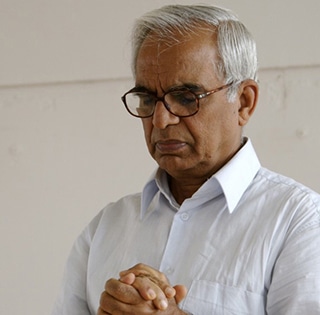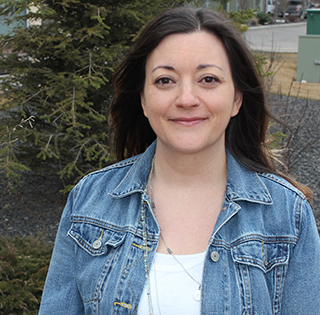
Why Viniyoga is our Chosen Methodology
Viniyoga, which means “appropriate application” in Sanskrit, is a holistic method that connects the entire person—body, breath, mind, emotions, and spirit. It focuses on adapting yoga practices to fit each individual’s unique needs and conditions.
At the Life of Wellness Institute, we chose Viniyoga because it offers a personalized and authentic yoga experience. This approach allows us to provide teachers and practitioners with tools to tailor their journey of self-discovery and growth.
Our methodology supports practitioners in fully embracing their life, health, and wellness. It involves evaluating their current state, recognizing their potential, setting meaningful goals, and using available resources. Viniyoga’s personalized approach helps individuals explore and develop their true selves across all koshas—physical, emotional, mental, energetic, and spiritual. This leads to balance, harmony, and overall well-being, reflecting the core principles of Yoga Therapy.
What is Yoga Therapy?
Yoga Therapy is a holistic approach grounded in Patañjali’s yoga and the Ayurvedic health system. It involves adapting yoga techniques to support individuals dealing with physical and mental health challenges.
Objectives of Yoga Therapy:
- Reduce Symptoms: Alleviate suffering where possible.
- Manage Symptoms: Provide strategies to handle symptoms that cannot be completely resolved.
- Address Causes: Identify and address the root causes of health issues where possible.
- Improve Life Function: Enhance overall function and quality of life.
- Shift Attitude and Perspective: Help individuals change their perspectives on life’s challenges.
This approach blends ancient wisdom with modern therapeutic practices, offering personalized solutions for achieving holistic well-being.
What is Viniyoga
Unlocking the Essence of Viniyoga
Viniyoga, based on the Yoga Sutras, takes a comprehensive approach that includes practices such as āsana (postures), prāṇāyāma (breath control), bandha (body locks), sound, chanting, meditation, personal rituals, and text study. What sets Viniyoga apart is how these practices are customized to meet each person’s unique needs.
Personalizing the Practice
Viniyoga adapts practice based on three key aspects of our being:
- Dharma: Our inherent purpose and duties towards ourselves, others, and the larger universe.
- Swadharma: The pursuit of fulfilling our personal mission and purpose.
- Swabhav: Our natural traits, current state, potential, goals, and resources.
These elements are fluid, reflecting the individual nature of each person’s journey.
The Role of Self-Care and Compassion
The Yoga Sutras discuss self-care through tapas, which involve disciplines that support overall well-being. At the Life of Wellness Institute, we integrate self-compassion into this practice, recognizing it as crucial for health and balance.
A Reflective Journey
Viniyoga helps us see our true selves across different layers, including:
- Functional Anatomy and Physiology
- Emotion Intelligence and Regulation
- Self-Perception and Beliefs
- Personal Goals and Direction
By promoting balance within the nervous system and nurturing qualities like compassion and clarity, Viniyoga supports:
- Enhanced Immune Function
- Improved Structural Integrity
- Mental Health and Resilience
- Better Sleep Quality
- Clearer Life Path
Viniyoga aids in aligning with our core selves and navigating our journey with greater insight.
Embracing Individuality on the Path of Self-Awareness

In Yoga Sutra 3.6, Patañjali emphasizes that each person’s journey toward self-awareness is unique. Our individual interests, needs, and capacities shape our paths of growth and self-discovery. This means that the methods we use to achieve greater understanding will vary. True self-awareness involves embracing our current state with acceptance and compassion and recognizing our strengths and challenges.
Some may find deep insight through seated mantra meditation, while others may connect with their inner selves through activities like walking in nature. The effectiveness of techniques depends on personal resonance and commitment. As our preferences and needs change, it’s therefore helpful to approach each stage of our journey with honesty, patience, and openness.
Embracing Life’s Stages
Krishnamacharya’s students, including Srivatsa Ramaswami, underscore the importance of adapting yoga practice to different stages of life. In his work, Yoga for the Three Stages of Life, Ramaswami illustrates how yoga evolves with us over time.
This insight aligns with Viniyoga’s “appropriate application” principle, reinforcing that yoga is not a universal practice but a personal journey. Adapting yoga to each stage of life ensures that we and our students use its tools effectively as we navigate various life phases.
“During the early part of life, learning yoga as a physical art form is most beneficial for the self-confidence and discipline it instills. In middle age, yoga should focus on physical therapy and maintaining optimum health as far into life as possible. In the last stages of life, the practitioner will be ready to focus on the ultimate goal of yoga--true understanding of the philosophy behind it and the realization of truth.”
Srivatsa Ramaswami from the book Yoga for the Three Stages of Life
The History of Viniyoga

Śri Krishnamacharya
Śri Krishnamacharya is a seminal figure in modern yoga, known for his extensive contributions to Vedic philosophy, Ayurvedic healing, and the revival of ancient yoga traditions.
His teachings on Viniyoga, passed down through generations from the 7th to 9th centuries, have profoundly influenced modern yoga practice. Often referred to as “the father of modern yoga,” Krishnamacharya’s integration of traditional wisdom with contemporary practice has left a lasting impact.

T.K.V. Desikachar
T.K.V. Desikachar, Krishnamacharya’s son, studied with his father for 29 years. Building on his father’s teachings, Desikachar founded Viniyoga, a personalized form of yoga therapy derived from the Yoga Sutras of Patanjali.
His work at the Krishnamacharya Yoga Mandiram (KYM) in Chennai, India, further developed and promoted Viniyoga, continuing his father’s legacy.

Melanie Taylor
Melanie Taylor began her yoga journey in 1990, finding profound healing through her practice. After over 25 years of studying Hatha yoga, she transitioned to Viniyoga in 2015.
With over 32 years of experience, Melanie integrates ancient traditions with Ayurveda and somatic coaching. Since 2014, she has been dedicated to sharing these teachings, enriching her clients’ and students’ journeys toward healing and self-discovery.





